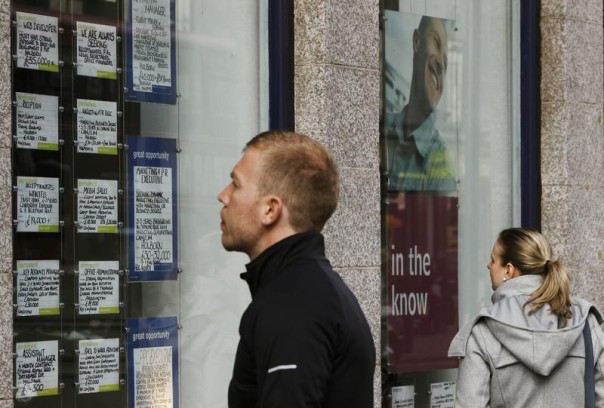Government Grants
Business Grants
Home Owner Programs
Federal Programs
About Us
Tribal Behavioral Health Grant Program
The Substance Abuse and Mental Health Services Administration (SAMHSA), Centers for Mental Health Services (CMHS) and Substance Abuse Prevention (CSAP), are accepting applications for the fiscal year (FY) 2020 Tribal Behavioral Health Grant Program (Short Title:
Native Connections).
The
purpose of this program is to prevent suicide and substance misuse, reduce the impact of trauma, and promote mental health among American Indian/Alaska Native (AI/AN) youth through the age of 24 years.
Native Connections is intended to reduce the impact of mental and substance use disorders, foster culturally responsive models that reduce and respond to the impact of trauma in AI/AN communities [1] , and allow AI/AN communities to facilitate collaboration among agencies to support youth as they transition into adulthood.
It is expected that recipients will develop and implement an array of integrated services and supports to prevent suicide.
AI/AN community members should be involved in all grant activities, including planning, program implementation, and evaluation.
At a minimum, community members should include youth, family members, tribal leaders, and spiritual advisors.
[1] For the purpose of this FOA, community or communities refers to the tribe, village, tribal organization, or consortium of tribes or tribal organizations, and urban Indian community.
Native Connections).
The
purpose of this program is to prevent suicide and substance misuse, reduce the impact of trauma, and promote mental health among American Indian/Alaska Native (AI/AN) youth through the age of 24 years.
Native Connections is intended to reduce the impact of mental and substance use disorders, foster culturally responsive models that reduce and respond to the impact of trauma in AI/AN communities [1] , and allow AI/AN communities to facilitate collaboration among agencies to support youth as they transition into adulthood.
It is expected that recipients will develop and implement an array of integrated services and supports to prevent suicide.
AI/AN community members should be involved in all grant activities, including planning, program implementation, and evaluation.
At a minimum, community members should include youth, family members, tribal leaders, and spiritual advisors.
[1] For the purpose of this FOA, community or communities refers to the tribe, village, tribal organization, or consortium of tribes or tribal organizations, and urban Indian community.
Agency: Department of Health and Human Services
Office: Substance Abuse and Mental Health Services Adminis
Estimated Funding: $9,820,000
Office: Substance Abuse and Mental Health Services Adminis
Estimated Funding: $9,820,000
Obtain Full Opportunity Text:
Tribal Behavioral Health Grant Program
Additional Information of Eligibility:
Eligibility is limited to federally recognized American Indian/Alaska Native (AI/AN) tribes, tribal organizations, Urban Indian Organizations, or consortia of tribes or tribal organizations.
The purpose of this program is to prevent and reduce suicidal behavior and substance use among AI/AN youth through the age of 24 years.
Therefore, SAMHSA is limiting eligibility to federally recognized American Indian/Alaska Native tribes, tribal organizations, consortia of tribes or tribal organizations, and urban Indian organizations since they are in the best position to implement the goals and objectives of this program.
These entities are defined as follows: Indian tribe, as defined at 25 U.S.C.
§ 1603(14), refers to any Indian tribe, band, nation, or other organized group or community, including Alaska Native village or group or regional or village corporation, as defined in or established pursuant to the Alaska Native Claims Settlement Act (85 Stat.
688) [43 U.S.C.
§ 1601 et seq.], which is recognized as eligible the special programs and services provided by the United States to Indians because of their status as Indians.
Tribal organization, as defined at 25 U.S.C.
§1603(26), refers to the recognized governing body of any Indian tribe; any legally established organization of Indians which is controlled, sanctioned, or chartered by such governing body, or which is democratically elected by the adult members of the Indian community to be served by such organization, and which includes the maximum participation of Indians in all phases of its activities.
Provided, that in any case where a contract is let or grant made to an organization to perform services benefitting more than one Indian tribe, the approval of each such Indian tribe shall be a prerequisite in the letting or making of such contract or grant.
Urban Indian Organization (UIO), as defined at 25 U.S.C.
§ 1603(29), operating pursuant to a contract or grant with the Indian Health Service, refers to a non-profit board of directors situated in an urban center, governed by an urban Indian-controlled Board of Directors, and providing for the maximum participation of all interested Indian groups and individuals whose body is capable of legally cooperating with other public and private entities for the purpose of performing the activities described in [25 U.S.C.
§ 1653(a)].
UIOs are not tribes or tribal governments and do not have the same consultation rights or trust relationship with the federal government.
A consortia of tribes or tribal organizations are eligible to apply, but each participating entity must indicate its approval.
A single tribe in the consortium must be the legal applicant, the recipient of the award, and the entity legally responsible for satisfying the grant requirements.
Recipients who received funding under SM-19-005, SM-18-017, SM-17-005, and SM-16-010 are not eligible to apply for funding under this FOA.
Additionally, an eligible applicant cannot submit more than one application.
Full Opportunity Web Address:
https://www.samhsa.gov/grants/grant-announcements/sm-20-002
Contact:
Agency Email Description:
FOACMHS@samhsa.hhs.gov
Agency Email:
Date Posted:
2019-10-11
Application Due Date:
Archive Date:
2020-01-09
Follow @topgovtgrant
Social Entrepreneurship
Spotlight
Change in the World of Work and Enterprise: Get Young People Into Work

The position young people are dealt with can be complex, and yet the entire economic system is still focused for an age that’s almost gone astray. The solution? Promoting social enterprise and getting these young people integrated into work.
Nonprofit Jobs in Alabama
Fundraising & Development Jobs
Social Services Employment
Substance Abuse Jobs
Program Director Jobs
Social Services Jobs

